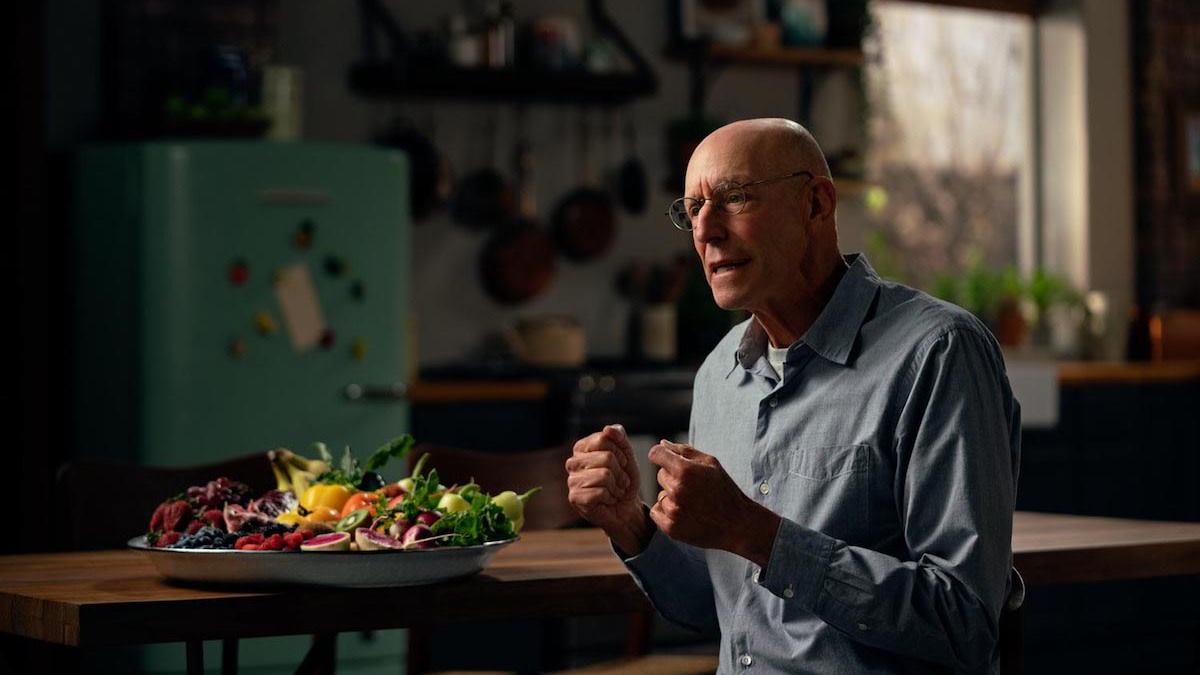Content Note: This article might contain references to sensitive information, such as body image and disordered eating.
Diet culture insists you prioritize overcoming societal weight stigma by following extreme dietary advice. Renowned food journalist Michael Pollan believes you must cut out this sort of noise about diets and take a more moderate and intuitive approach to your overall health and wellness. Read on to learn what he has to say about combating diet culture.
Learn From the Best
What Is Diet Culture?
Diet culture is a system of beliefs and behaviors prevalent in society about the value of adhering to calorie deficits, cutting out food groups, and participating in detoxes and cleanses. It tends to put a high premium on weight loss.
Society disseminates information about fad diets via advertisements, influencers, certain health professionals, and other public figures and sources. Rather than encouraging a moderate approach to healthy eating, diet culture takes a limited view of what people should eat and how they should look. It can, therefore, have a very negative impact on people’s physical health and mental well-being.
Why Is Diet Culture Harmful?
Diet culture convinces people they must pursue a specific body type at all costs, even if it’s detrimental to their physical and mental health. The diet industry often demonizes gaining weight, no matter the extenuating circumstances, and promotes disordered eating behavior. It makes a moral virtue out of weight loss and thinness, singling out the negative health effects of obesity even as it refuses to recognize how crash dieting can adversely affect a person’s wellness.
Harmful Effects of Diet Culture
Diet culture has had a negative impact on people of all sorts of body shapes and sizes. These are some of its harmful effects:
- Body image issues: Diet culture can make people with larger body types develop harmful self-images. For that matter, diet culture defines almost all of a given population as having too large a body shape in the first place. Many health care workers now advocate for a “health at every size” approach, hoping to reduce people’s insecurities about their bodies at the same time they encourage them to adopt healthy habits.
- Eating disorder risk: When diet culture makes people feel they have an abnormal or wrong body size, it can lead to the development of disordered eating behaviors. Some people might obsessively track their calorie consumption in dieting or food restriction apps, while others might develop more extreme eating disorders like anorexia or bulimia.
- Malnutrition: Some diets encourage their adherents to cut out entire food groups. For instance, a diet might suggest drastically lowering or cutting out carbohydrates. While eating an unnecessary surplus of carbs is possible, they are still necessary for your body to function well. Misleading dieting advice like this causes people to negate other aspects of their health so they can avoid weight gain.
- Weight cycling: Rapidly fluctuating eating behaviors and choices can lead to a rapidly fluctuating weight as well. This sort of weight cycling can harm your physical health and wellness over a long period of time. Even in the short term, it can lead to a drastic increase in insomnia and anxiety.
How to Combat Diet Culture: 4 Tips From MasterClass Michael Pollan
Food journalist Michael Pollan has spent years studying the connection between what people eat and how it contributes to or detracts from their well-being. Consider his tips for combating diet culture:
- 1. Avoid dieting. As a general rule, Michael is anti-diet and thinks it’s better to eat a wide array of items from all different food groups. “You know, we have been through so many fad diets, and all of them founder eventually,” he says. “They don't work. And they're just not the way to approach eating because the changes that you make are not sustainable.” Approach food with balance in mind instead of seeking ways to cut out hundreds of calories or avoid entire food groups.
- 2. Expect nutrition advice to change. New diets become popular because of new and sometimes conflicting information about the human body. “Nutrition advice is always changing,” Michael says. “The human body, like the natural world, is a wilderness in many ways, and human nutrition and metabolism is still very poorly understood.” You’re also much better off consulting a trusted and registered dietitian or nutritionist than basing your food choices on social media fads or bestselling diet books.
- 3. Practice moderation. If you would like to lose weight, recognize you’ll have a better chance of doing so through clean eating than crash dieting. “If you're eating well,” Michael says, “[if] you're eating from a healthy food chain, from healthy soils and you're not eating ultra-processed food, you will, as a byproduct, lose weight.” Practice intuitive eating habits, and focus as much on your mental health as your physical health.
- 4. Question what you hear. If you hear about a new diet on a podcast or from a friend, it doesn’t mean there’s a lot of hard science to back it up. “When you read about some new study showing that, you know, low fat helps, or Mediterranean helps, or whatever it is,” Michael says, “what is that data based on? How has that conclusion arrived? How do you study what people are eating?” Approach nutritional advice with common sense and skepticism.
Eat With Intention
See food like you have never seen it before. With the MasterClass Annual Membership, journalist and educator Michael Pollan teaches you how to determine your ingredient sources, shop at the grocery store, and rethink your relationship to food.
